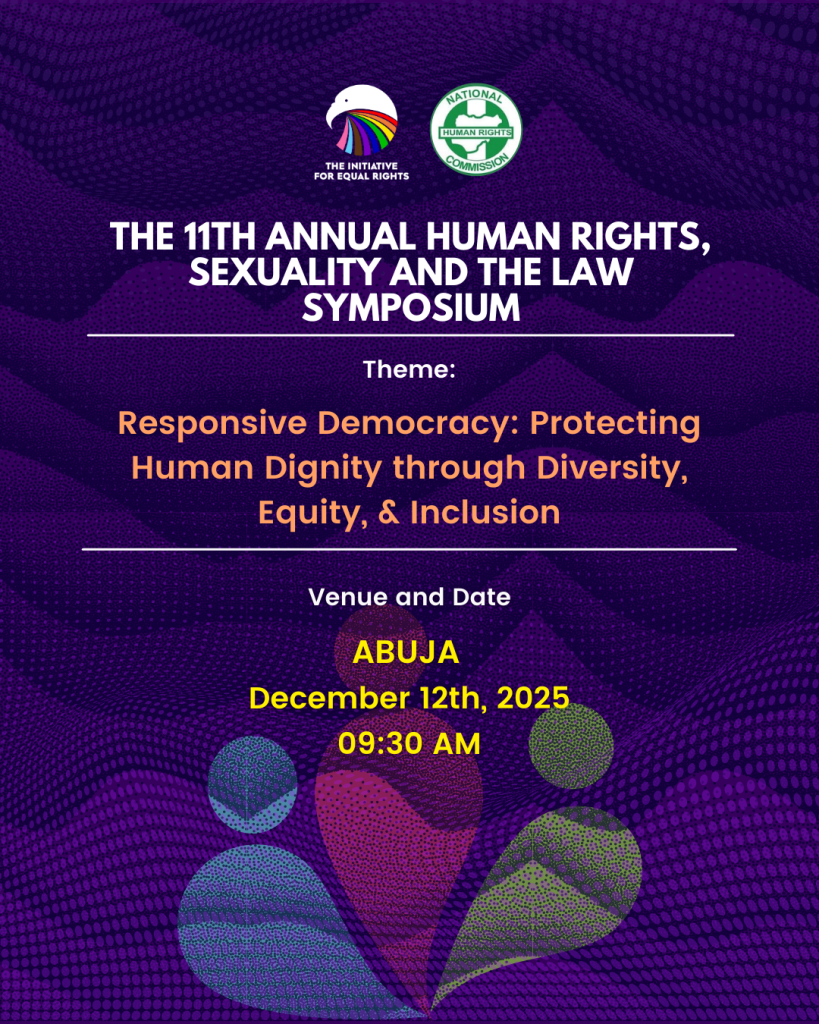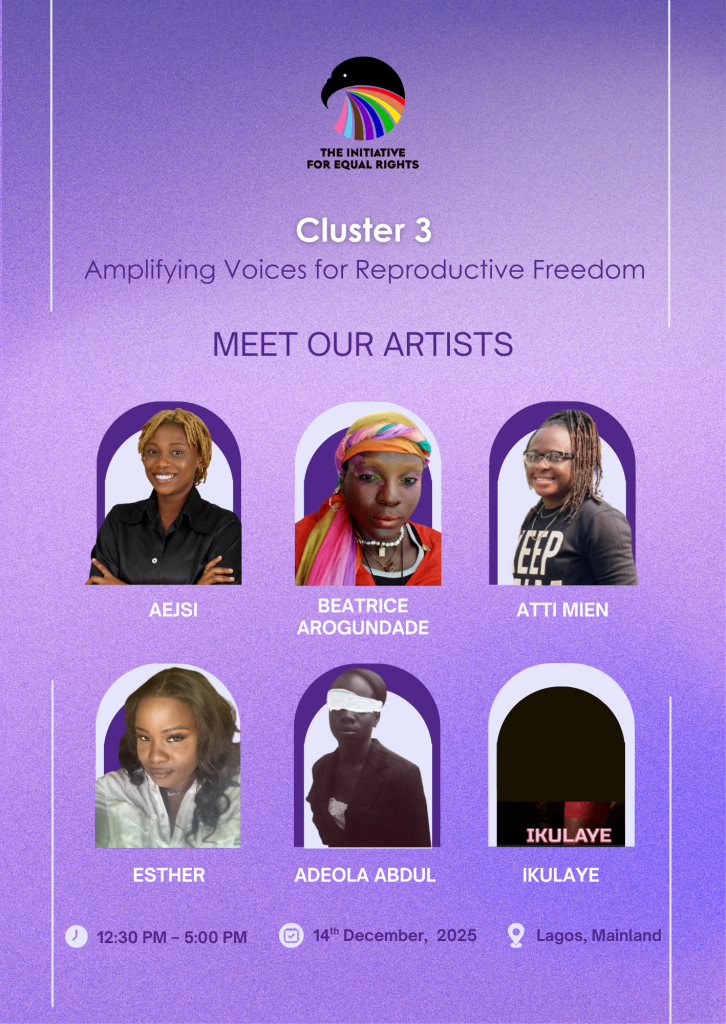On Tuesday, 24 June 2025, we hosted a webinar titled “Funding Resistance: Rethinking Funding for Queer Movements in Africa.”
As Pride season rolls by, we’re reminded not only of celebration, but also of the urgent need for solidarity, strategy, and sustainable support. In 2025, across the African continent, queer activists are doing the hard work of holding communities, responding to crises, and building new worlds, often with little to no institutional support. As global anti-queer backlash grows louder, many movements find themselves isolated, underfunded, and forced to choose between survival and strategy.
But one urgent question remains: What does it take to fund resistance that lasts?
Why This Conversation Matters
In his keynote speech, Afolabi Aiyela – Executive Director, TIERs emphasized that this is an especially urgent moment to ask that question, considering how 2025 has seen major changes in global funding. Some key donor governments have pulled back from supporting queer rights abroad, choosing instead to focus on domestic priorities while simultaneously advancing or enabling transphobic and homophobic agendas.
The conversation was moderated by TIERs’ Director of Programs, Chimdimma Ike, who guided our expert panel of speakers which included Aisha Shaibu-Lenoir – Member, GiveOut Board of Trustees, Ebenezer Peegah – Executive Director, Rightify Ghana, and, Michael Essien, HIV Project Lead, Lagos State AIDS Control Agency (LSACA). Through this conversation, we asked and addressed these important questions:
- How are African queer movements navigating the global rollback of queer rights?
- What does it means to fund resistance without compromising autonomy?
- How do we build strategies that serve our people, not just our budgets?
On funding resilience, Aisha Shaibu-Lenoir introduced the LGBTQIA Urgent Response Fund, recently launched by GiveOut that offers emergency, flexible grants to partners in countries like Iraq, Lebanon, Nigeria, Jamaica, and El Salvador facing funding cuts. While the fund doesn’t fully replace lost resources, it provides short-term relief that helps organizations retain staff and preserve institutional knowledge as they seek new funding.
Aisha Shaibu-Lenoir also emphasized the importance of multi-year, long-term co-funding, arguing that it enables better planning, stronger strategies, and more lasting impact. Sustainable support, she explained, builds organizational infrastructure and resilience over time.
On the topic of Alternative Strategies for Emergency Funding, Ebenezer described the Rapid Response System, a grassroots-focused emergency support network. Unlike traditional models that primarily serve frontline human rights defenders, this system prioritizes queer individuals at the community level, offering relocation, medical, and legal aid. It’s a collaborative effort between queer organizations, a few mainstream human rights groups, and UN agencies to respond quickly to incidents of sexual and gender-based violence in grassroots regions in Ghana.
Aisha Shaibu-Lenoir further advocates for funders to invest in long-term infrastructure, specifically, helping organizations acquire their own property. She explains that owning spaces, like LGBTQ+ centers or offices, reduces vulnerability to landlords’ biases and creates stability and safety. Property ownership, she adds, can cushion organizations during funding cuts and support their long-term growth and evolution.
In response to the funding setbacks, Michael Essien of LSACA shares that long-term solutions are being strategized by the Lagos state government and stakeholders. These include efforts to mobilize domestic resources, form public-private partnerships, and diversify funding streams. The goal is to build local ownership and funding resilience, ensuring communities can sustain and lead their own HIV response.
Curious about how to resource change in a just, strategic, and rooted way?
Click to watch the whole webinar on Youtube and join the conversation today!
KEYNOTE SPEECH – AFOLABI AIYELA
It is an honour and a privilege to welcome you all to this important conversation, hosted by The Initiative for Equal Rights (TIERs), in commemoration of Pride Month. I extend my heartfelt gratitude to each of you—advocates, donors, community leaders, allies, and change makers—for your presence, your commitment, and your ongoing resistance.
Our theme today—“Funding Resistance: Rethinking Funding for Queer Movements in Africa”—could not be more timely or urgent.
As many of us are acutely aware, 2025 brought seismic shifts to the global funding landscape. Several donor governments, once pivotal in supporting queer rights, have withdrawn their overseas development assistance—redirecting resources to other national priorities—while simultaneously advancing or enabling transphobic and homophobic agendas. We have witnessed damaging legal decisions and a resurgence of far-right movements that are systematically chipping away at hard-won progress.
In our local context, the impact on queer civil society has been profound. Traditional funding streams are rapidly shrinking, leading to the loss of critical roles and the deliberate obstruction of access to life-saving medication. And yet, our communities, our needs, and the work we do have not lessened. On the contrary—they have grown more urgent, more visible, and more indispensable than ever before.
But here is the truth we must hold onto: Queer communities in Africa have never depended solely on external validation or external resources for their survival. We have always organized. We have always resisted. We have always created space for ourselves where there was none.
And so, this moment demands that we reimagine not only where our funding comes from, but how we think about sustainability, solidarity, and strategy.
This is the time for collaborative innovation—not just across borders, but across sectors, movements, and identities. We must look inward and ask ourselves: How can we build interdependent systems of support within our local and regional contexts? How can we deepen partnerships among community-based organizations to avoid duplication and increase collective impact? How can we mobilize local resources, knowledge, and talent in ways that create value for, and by the communities we serve?
We must also begin to interrogate and invest in alternative and locally rooted funding models—whether through social enterprises, ethical partnerships, mutual aid networks, or regional giving ecosystems.
Many of our organizations, including TIERs, have long histories of delivering community-led health services, mobilizing regional solidarity in times of crisis, and positioning ourselves as trusted voices in both national and global spaces. These assets are not just programmatic—they are strategic.
At TIERs, we are committed to exploring these questions in practice—not only out of necessity but out of a deep belief in the creativity, resilience, and brilliance of Nigerian, and African queer movements. We know that funding resistance means understanding funding not just as money, but as trust, autonomy, strategy, and imagination.
Today, I invite all of us to think beyond the scarcity mindset. The question is not simply: Where will the next grant come from? The question is: What kind of movement do we want to build—and how can we resource that vision together, on our own terms?
My hope is that the conversation we engage in today will reignite our collective imagination and strengthen our commitment to purposeful collaboration—collaboration that is not only strategic but essential for our sustainability and survival. Because only together can we sustain this work, safeguard our communities, and forge a future rooted in justice, dignity, and hope.
Thank you all for being here. Happy Pride Month—and may our collective resistance continue to flourish.


